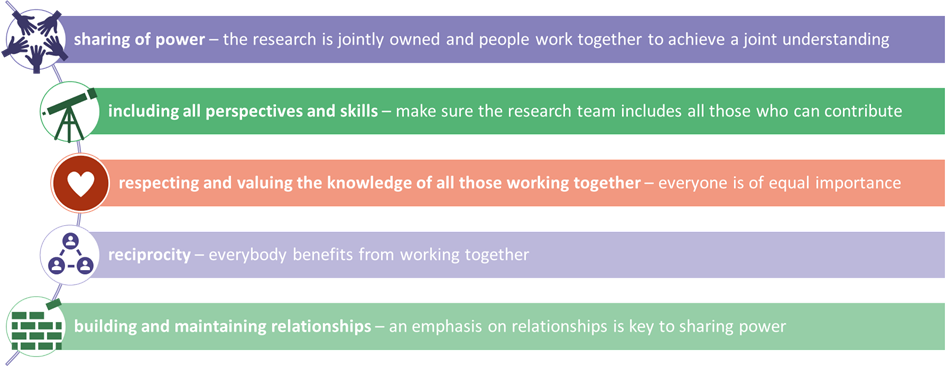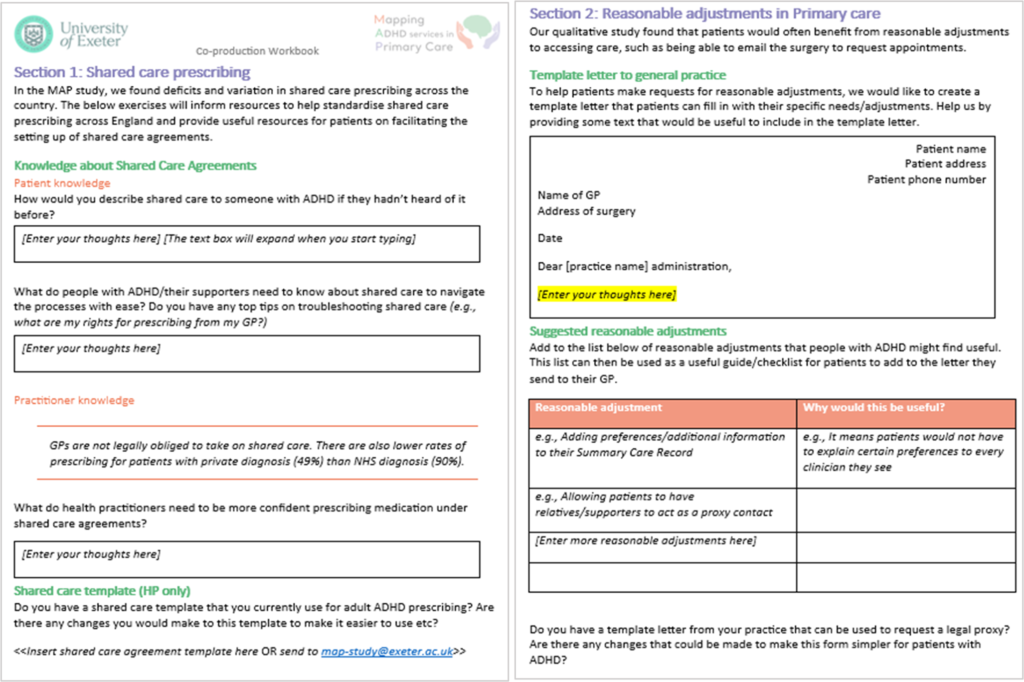Exeter Collaboration for Academic Primary Care (APEx) Blog
Exeter Collaboration for Academic Primary Care (APEx) Blog
Posted by ma403
21 May 2024Becky Coniam-Gudka, Dr Anna Price and the MAP team
Attention deficit hyperactivity disorder (ADHD) is a common neurodevelopmental disorder which affects both children and adults. ADHD can be managed effectively (and positively) with adequate support from services. However, the current “failure” of healthcare (1) for young people with ADHD, including difficulties accessing adult mental health services (AMHS), means accessing treatment is a particular challenge for young people aged 16-25 who must transition between child and adult services.
The Managing young people with ADHD in Primary care (MAP) study aimed to explore management of ADHD for young people aged 16-25, and co-produce guidance to improve provisions (2).
Co-production work was planned as a key component of the MAP study to ensure findings were accessible for stakeholders. This final work package of the MAP study, followed a national survey and qualitative study of young people with ADHD, their supporters, and healthcare professionals, on experiences of accessing primary care (3, 4).
Key findings from these prior studies included an exploration of challenges experienced by young people and healthcare professionals in managing ADHD in primary care. The aim of the co-production package was to create evidence-informed information resources for young people with ADHD and key messages for healthcare professionals based on these findings.
We followed the NIHR guidance on co-production, which focusses on joint power and understanding, including and respecting all perspectives and skills, and reciprocity(see Figure 1) (5). Our co-production work started by distilling key MAP study findings into an infographic and topics/activities for a workbook for participants (see Figure 2). Participants met through workshops and some individual meetings to discuss and fill-in the workbooks. Content generated was compiled into a downloadable resource for young people, offering practical advice and support. Additionally, key messages for healthcare professionals were developed. Finally, outputs were refined via another round of feedback. Seven young people with ADHD (or their supporters) and six healthcare professionals participated.
Figure 1: NIHR key principles of co-production

The co-production workbook was designed to facilitate workshop discussions, with activities and question prompts for participants to engage with and discuss.
This heavily structured approach had several benefits. The workbook worked as a tool to structure meetings and help keep them to time. This is beneficial for people with ADHD who may find lengthy meetings difficult to engage with, and for busy healthcare professionals with limited time. In addition, the structured approach ensured all discussions were grounded in the study’s findings, providing a solid foundation for developing relevant and useful outputs.
Figure 2: An example of workbook activities

“It’s really helpful to go through [the workbook] together and also other people’s ideas are really helpful.” – Young person with ADHD
Another benefit was that participants felt the activities and prompts made it easier to share experiences and hear from others, leaving them feeling validated and valued within the group.
“I felt that my views and suggestions were validated and listened to and that the researchers really valued my input.” – Health professional
Unfortunately, there were some drawbacks. The workbook was long and dense with information and activities, which participants agreed was initially overwhelming. Although was less intimidating when working through the activities jointly, it was not ideal for people with ADHD who can struggle to maintain attention. On reflection, streamlining the workbook would have supported more straightforward discussion, and perhaps improved the experience for participants. The workbook format was also less accessible to participants due to workshops being held online. In-person meetings with printed materials, although more resource intensive, may have made the experience more enjoyable and easier for participants and improved the usability of the workbook format.
“Well, I found today’s discussion absolutely excellent. I’ve found the workbook and given that I haven’t got ADHD, I found it quite big” – Supporter of a young person with ADHD
In summary, while the structured approach facilitated, organized and focused group discussions, there was room for improvement. Future co-production efforts could benefit from balancing structure with flexibility, using more concise and creative means to explain workshop activities.
Some outputs from this co-production work are available for download on our website. The remaining outputs, and results from this work are being written up for publication.
With thanks to all our co-production partners, research participants, and supporters, whom this work would not have been possible. This project is funded by an NIHR Three Schools’ Mental Health Research Fellowship (MH008). The views expressed are those of the author(s) and not necessarily those of the NIHR or the Department of Health and Social Care
1. Young S, Asherson P, Lloyd T, et al. Failure of Healthcare Provision for Attention-Deficit/Hyperactivity Disorder in the United Kingdom: A Consensus Statement. Front Psychiatry. 2021;12:649399. doi:10.3389/fpsyt.2021.649399
2. Price A, Smith J, R, Mughal F, et al. Protocol for the mixed methods, Managing young people (aged 16–25) with Attention deficit hyperactivity disorder in Primary care (MAP) study: mapping current practice and co-producing guidance to improve healthcare in an underserved population. BMJ Open. 2023;13(7):e068184. doi:10.1136/bmjopen-2022-068184
3. Gudka R, Becker K, Ward J, et al. Primary care provision for young people with ADHD: A multi-perspective qualitative study. British Journal of General Practice. 2024. doi:10.3399/BJGP.2023.0626
4. Price A, Becker K, Ward J, et al. Support for primary care prescribing for adult ADHD in England: national survey. Br J Gen Pract. 2024. doi:10.3399/BJGP.2023.0595
5. NIHR. Guidance on co-producing a research project. 2021. Available from: https://www.learningforinvolvement.org.uk/?opportunity=nihr-guidance-on-co-producing-a-research-project. [accessed 8th March 2022].